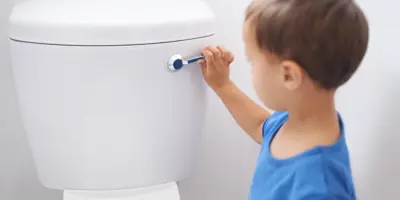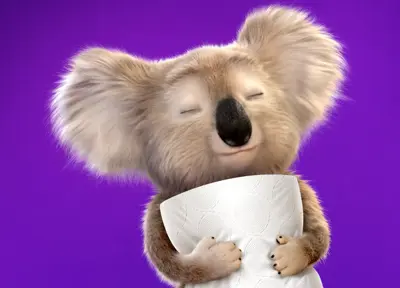
It’s amazing how dramatically babies change in their first two years. From opening their eyes to taking that wobbly first step, the developmental stages of babies can seem to happen mind-bogglingly quickly, making it one of the most exciting times for new mums and dads.
Prepare yourself to make the most of every moment with this breakdown of all those important baby development milestones. Just remember – this is just a guide; all babies are different and develop at varying rates, which is what makes them special.
1 month
The rate of baby development in the first few weeks can be staggering. By one month, your baby will have fully developed hearing, and might even be able to hold their head up – but be sure to continue to give it plenty of support.
2 months
Get ready for one of the most heart-warming of all the baby development milestones: your little one’s first genuine smile. With this emotional development come the inevitable tears, but there’s no need to worry – just keep some extra-soft hankies on hand.
3 months
Your baby will gain a whole new interest in their hands around this age. Their sense of touch is deepening, and they’ll love skin-to-skin contact just as much as you will. Try giving them toys with different textures on, or even enrol in a baby massage class.
4 months
Rolling over is one of the baby development milestones that’s just as likely to happen at three months as seven months. At four months, however, they’re probably spending time on their front and showing signs of rolling.
5 months
Laughter is possibly the most gratifying of all the newborn baby milestones. At this age, you’ll feel like the world’s best comedian, as your little one chortles at your funny faces. And a lot of other things, too. Make the most of it: this is the last time your little one will find all those classic corny mum and dad jokes funny.
6 months
At the half-year mark, many babies are getting ready to say hello to solid food. Keep a packet of wet wipes to keep little hands clean and fresh, even if you’re on the move. Ask older brothers and sisters to help with feeding time – they’ll love taking on the responsibility and it’ll help them bond with their little sibling.
7 months
It’s tricky to place that all-important first tooth on a baby milestone chart, but you might start to see signs of teething around now. This might include dribbling, red cheeks, a runny nose, rubbing their gums or gnawing their fist. Keep a packet of Cushelle facial tissues on hand for gently keeping dribble and runny noses at bay.
8 months
Dropping and throwing objects is now possible, and a fun game for your little one – especially at dinner time.
9 months
Nine months introduces a whole new world to your baby. Stages of development don’t come much more exciting than crawling and ‘cruising’, where they pull themselves up on furniture and hold on as they explore.
10 months
Our list of baby milestones wouldn’t be complete without those all-important first words. Around 10-11 months is the average age for this magical moment.
11 months
As your baby approaches their first birthday, they might start exerting their own will more, pointing to things they want (and pushing back on things they don’t). This desire for independence is a positive sign, and can be managed by offering them a simple choice between two options, such as two different types of fruit.
12 months
Happy birthday! At 12 months, babies often learn to stand unaided, with a few new words in their vocabulary, too. Now is a good time to try out some messy, creative games for babies, helping them improve their co-ordination and social skills.
13 months
Walking is one of the big milestone moments in the developmental stages of babies. The average age for that precious first step is 13 months, but this varies widely and you shouldn’t worry if your little one follows a bit later. When the moment does come, make sure the whole family is on board with giving him or her lots of praise, so they feel excited about exploring their new-found skill.
14 months
Your baby is entering toddlerhood and all its fun games, like being able to roll a ball backwards and forwards with you.
15 months
That baby development milestone of the first tooth might return around now, as the first large molars start to push their way through.
16 months
Singing nursery rhymes is a daily part of family life, and your little one might start joining in around this age. Their love of repetition means they’re very familiar with their favourites!
17 months
As children of this age start realising the differences and similarities between objects, they begin to enjoy matching the colours and shapes of their toys (and probably their food, too). Keep some wet wipes handy for wiping sticky fingers and toys.
18 months
On a baby milestone chart, 18 months marks the time when your baby is likely to be able to say a short phrase, using the 20 or so words they have carefully mastered.
19 months
Your toddler’s attention to detail is developing and they’ll start to recognise when something isn't quite right. Jump at this opportunity to teach them how to put their toys back in the toy box once they’ve finished playing with them – good for their development, and even better for you!
20 months
With a bit of hand-holding, puddle jumping might become a favourite pastime around now, and they’ll love going up on mummy or daddy’s shoulders during walks in the woods. Keep some paper towel near the door for wiping muddy boots.
21 months
Your little one might now be starting to enter the world of potty training. Read up on how (and when) to potty train kids, and don’t forget to kit out the potty as if it’s a throne – with soft toilet paper like Lotus, and some flushable wet wipes for an extra clean feeling.
22 months
Throwing games become lots of fun at this age, as your toddler starts to master the art of launching a small ball overarm.
23 months
Children approaching their second birthday might start to dress and undress themselves, and take more of an interest in clothes. Fill a box with fun clothes and accessories and encourage them to express themselves, no matter what takes their fancy.
24 months
Our list of baby milestones ends here at your child’s second birthday – a time when they might become interested in playing side-by-side with another child, and include others in their games.
Enjoy the big moments in your little one’s first two years, whenever they happen.

Related articles
Baby Activities: Play Ideas for Their First Year
Looking for activities to do with babies? Click here to discover an age-by-age list of baby activities that the whole family can get involved with.
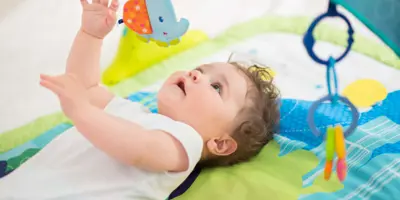
Holiday packing list: the essential holiday checklist for families
Need some advice on how to go on holiday with kids? Our top tips and holiday with kids checklist will help you make it the best family break ever.

How to craft the perfect morning routine for school
Does your morning routine for school always end up in everyone leaving the house late? Read on for tips to help you to craft the perfect morning routine.

Painting for Kids: Easy Painting Ideas for Little Artists of All Ages
No matter their age, painting for kids is always a big hit, but where to begin? Get inspired with our painting ideas for kids of all ages.
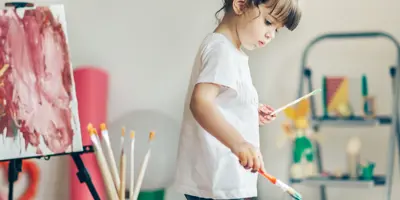
The potty-to-toilet transition: 7 essential toilet training tips
Do you think your child is ready to make the transition from potty to toilet? Read this guide for toilet training tips from the experts at Cushelle.
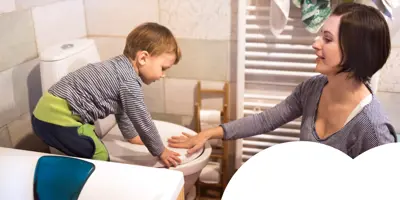
What's the Right Age to Start Potty Training?
Is there a 'good' age to potty train? Cushelle answers all your questions about how to know when your child is at potty-training age. Click for more.
